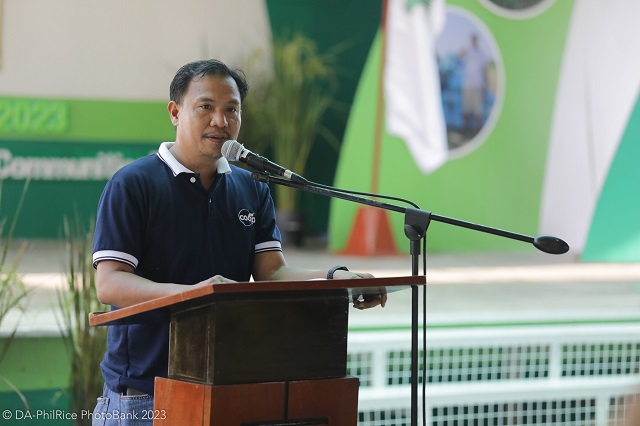
Officials from cooperatives in Nueva Ecija and Nueva Vizcaya have urged over a thousand farmers to collaborate to enhance access to government interventions and market opportunities.
During the two-day Lakbay Palay organized by the Philippine Rice Research Institute (PhilRice) in Science City of Muñoz, Nueva Ecija on Sept. 27-28, Ariel Dolores, chairperson of the Nueva Ecija Seed Growers Multipurpose Cooperative, shared that their collective efforts have helped them overcome their farming challenges.
“As a group, we also face challenges but we don’t rely heavily on government interventions for our farming needs so these can be allocated to the emerging associations or cooperatives. We’re already grateful that the government assists us in procuring our seed produce. To increase our income, we diversified our ventures into machine dealership, which we established in our new P23M-facility,” Dolores explained.
Meanwhile, Vicente Gonzales, chair of St. Vincent Parish Multipurpose Cooperative in Nueva Vizcaya, emphasized the benefits of cooperative membership including low loan interest rates, access to agricultural inputs such as fertilizers and seeds, dividends, and calamity aid.
“Previously, farmers were burdened with loans with 20% interest per month. By joining cooperatives, interest can be as low as 1.17% per month. During calamities, we also have loan amnesty programs for the heavily affected farmers,” he said.
The cooperative, established in 1979 through a P100 contribution from each farmer totaling P4,000, now has a capital worth P424M. During the peak of the pandemic, the coop allocated P2.5M to subsidize the needs of their members.
With the theme “Bida ang Sama-sama,” Lakbay Palay also launched the “BIDA RiceBIS, Be the rice’s best” movement where about 10 public and private agencies and cooperatives pledged their support to increase farmers’ market opportunities. These include the Landbank of the Philippines, local government unit of Arayat, Bamboo Development Incorporated, and Kiwanis international-Philippines Luzon and Bicol districts.
Central Luzon farmers were also introduced to PhilRice-developed technologies such as Palayamanan – a rice-based farming system they can adopt to mitigate the economic effects of El Niño, high-yielding varieties, and farm machinery.
“What caught my attention were the rice varieties which have larger grains than the NSIC Rc 216 that we usually grow. I also became interested in machines such as the drum seeder,” said Emilita del Rosario, a 60-year-old member of the Joyful Garden Farm Organic Farmers Association.
Digital farming was also promoted through the use of Minus-One-Element app, which calculates appropriate amount and timing of fertilizer application based on soil’s nutrient needs; Leaf Color Computing or LCC app, which recommends amount of nitrogen fertilizer and timing of fertilization by taking a photo of leaf with a smartphone; and Rice Crop Manager (RCM) Advisory Service, which provides recommendations for correct type, amount and timing of fertilization and even rice management.
Reaching about 30,000 followers online, the program’s livestream can be accessed in the links https://bit.ly/2023LakbayPalay1 and https://bit.ly/2023LakbayPalay2.
PhilRice stations in Batac, Isabela, Los Baños, Bicol, Negros, Agusan and Midsayap also conducted Lakbay Palay showcasing technologies suited for their coverage area.




